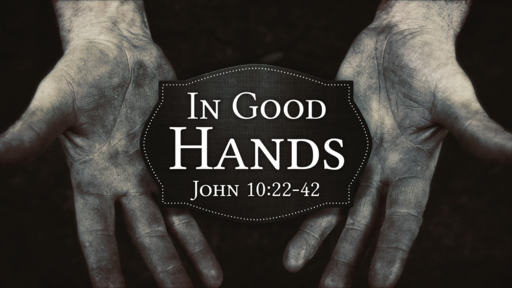In Good Hands

Jesus is God, and our Good Shepherd. We can trust Him for both the things we see, and the things we do not see.
Solomon Ginsburg, a Polish Jew, became a flaming evangelist across both Europe and South America. In 1911, needing rest, he decided to head to America on furlough. His route took him to Lisbon where he planned to cross the Bay of Biscay to London, then on to the States.
Arriving in Lisbon, Ginsburg found the bulletin boards plastered with weather telegrams warning of terrific storms raging on the Bay of Biscay. It was dangerous sailing, and he was advised to delay his trip a week. His ticket allowed him to do that, and he prayed about it earnestly.
But as he prayed, he turned to his W.M.U. prayer calendar and found the text for that day was Deuteronomy 2:7—“For the Lord your God has blessed you in all the work of your hand. He knows your trudging through this great wilderness. These forty years the Lord your God has been with you; you have lacked nothing.” The Lord seemed to assure him that his long, worldwide travels were under divine protection. Ginsburg boarded ship at once, crossed without incident, and caught the Majestic in London. His transatlantic voyage was smooth and restful.
